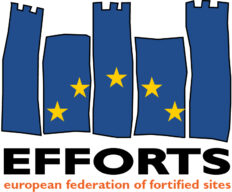As the EU has started discussing the proposed recovery plan, 99 organisations from across Europe’s cultural and creative sectors are uniting their voices to alert EU leaders. EFFORTS co-signed the open letter to the European Council, Commission and Parliament. The European cultural sector needs strong and systemic sup¬port measures to recover from this crisis. Hereby the central points of this call. With the subject of its annual 2020 congress, EFFORST wants to research on the socio-economic impact and importance of the (fortified) heritage sector, arguing for possible financial support in the frame of its importance for local, regional, national economies.
- According to the Commission’s own estimates, some parts of our sector – which accounts for €509bn in value added to GDP and over 12 million full-time jobs – are expected to lose up to 80% of their turnover in the 2nd quarter of 2020.
- We have a higher than average percentage of self-employed workers, freelancers, micro-businesses and youth employment, which makes us particularly vulnerable in times of crisis.
As the European economy is slowly restarting, it is far from business as usual. Cultural actors are - Despite being identified as one of 14 of the hardest hit ecosystems, there is neither a sector specific instrument for culture, nor a clear indication on whether or how we can benefit from different instru¬ments. The section on REACT-EU in the Commission’s Communication1 refers to culture, but there is no guarantee that we will receive appropriate support.
- Bring the EU’s support for our sector to a level that is commensurate with its contribution to the EU’s economy and its citizens’ wellbeing, we call on Member States and the European Parliament:
- Push for a substantial increase of the Creative Europe budget, fully supporting the European Parlia¬ment’s proposal for a budget of €2.8bn.


